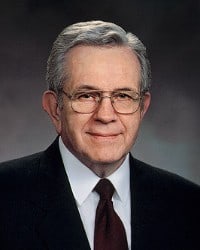
There are those within the Church who are disturbed when changes are made with which they disagree or when changes they propose are not made. They point to these as evidence that the leaders are not inspired. They write and speak to convince others that the doctrines and decisions of the Brethren are not given through inspiration.
Two things characterize them: they are always irritated by the word obedience, and always they question revelation. It has always been so. Helaman described those who “began to disbelieve in the spirit of prophecy and in the spirit of revelation; and the judgments of God did stare them in the face” (Helaman 4:23). “They were left in their own strength” (4:13), and “the Spirit of the Lord did no more preserve them; yea, it had withdrawn from them” (4:24). Changes in organization or procedures are a testimony that revelation is ongoing. While doctrines remain fixed, the methods or procedures do not.
| Ensign, November 1989, p. 15